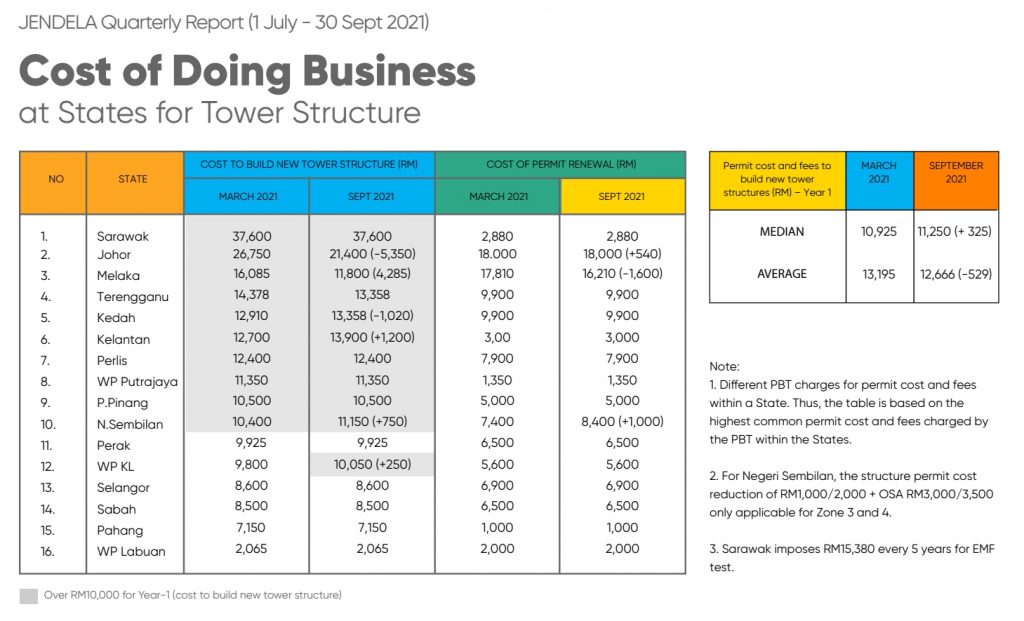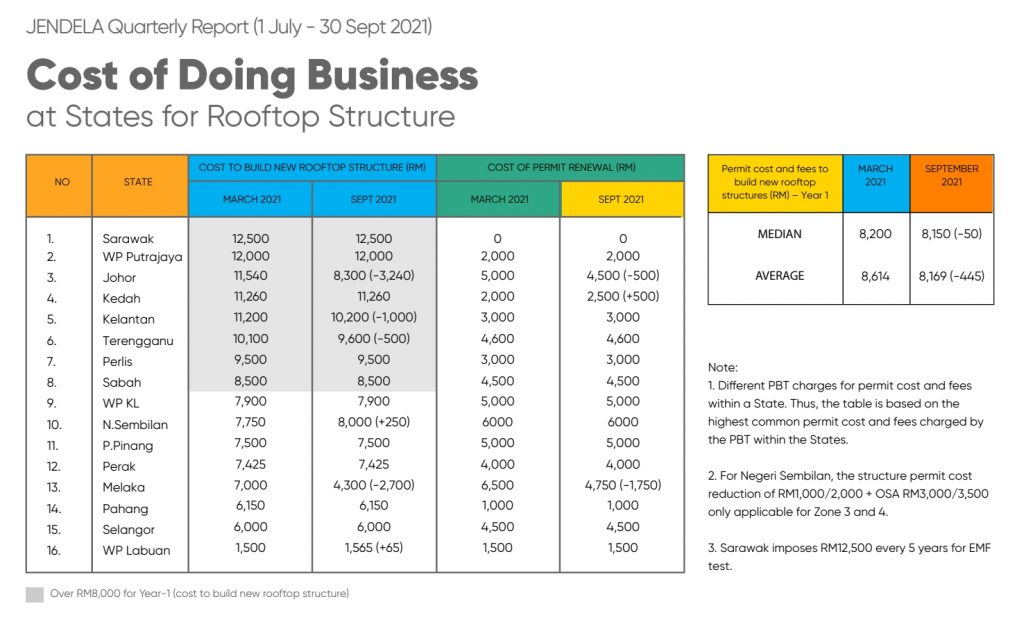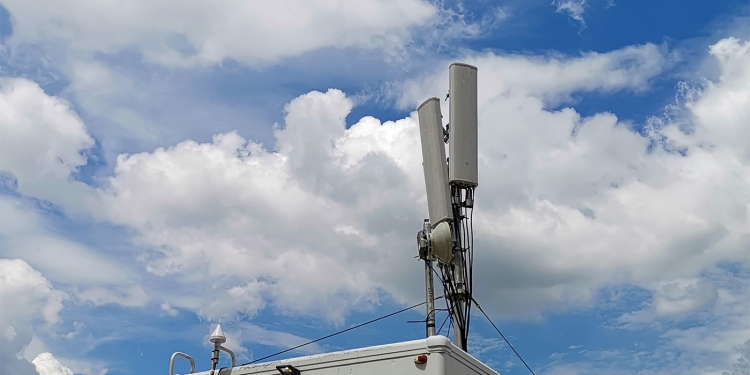In an attempt to encourage service providers to increase their investment in the provision of comprehensive communications infrastructure, the Prime Minister Datuk Seri Ismail Sabri Yaakob has announced that the government will form a special committee to standardise the cost, charges and fees for the development of telco infrastructure at the state level.
He said this following the Menteri Besar and Chief MInister’s Meeting held today. He said the committee will study and recommend a mechanism to standardise the cost of charges and fees imposed for the development of communications infrastructure across the country. Ismail Sabri said each state authorities, local authorities, one-stop centres and other related agencies are charging different costs, charges and fees based on surveys conducted by the Malaysian Communications and Multimedia Commission (MCMC).
As mentioned in JENDELA’s Q3 2021 quarterly report, it is the MCMC’s key responsibility under JENDELA to standardise the cost of building new network towers and rooftop structures. As of 30th September 2021, the median total cost to build new tower structures is RM40,000 over 6 years while the median total cost to build rooftop structures is RM30,000 over 6 years.

There’s a huge disparity in cost depending on each state. Sarawak has the highest cost to build a new tower at RM37,600, followed by Johor at RM21,400, Kelantan at RM13,900, Kedah at RM13,358 and Melaka at RM11,800. Meanwhile, it only cost RM8,500-RM8,600 to build new towers in Selangor and Sabah, RM7,150 in Pahang and RM2,065 in Labuan.

For rooftop structures, Sarawak still costs the most at RM12,500 per structure, followed by Putrajaya at RM12,000, Kedah at RM11,260 and Kelantan at RM10,200. Labuan still has the lowest cost at RM1,565 per rooftop structure.
In Sarawak, the state charges RM15,380 for towers and RM12,500 for rooftop structure every 5 years for EMF test.
TIME dotcom CEO Afzal Abdul Rahim previously said local authorities and bureaucracy sometimes hold up the progress of the installation and rollout of necessary infrastructure to support internet connectivity. He also said individuals seeking to make a cut financially also hamper the pace of strengthening digital connectivity.
While acknowledging that telcos could do better, he said the single biggest hindrance to rollout network infrastructure in Malaysia is the local authorities, the behaviour, and ancillary business ambitions that is tied to the “koncos” around the MB.
The MCMC has been pushing state governments to treat internet access as a third utility after electricity and water. As of 31st March 2022, state authorities are still in the midst of reviewing the Uniform Building By-Law (UBBL) amendments and it aims to circulate the Memorandum Jemaah Menteri on ‘Facilitation of Permit Fee for The Digital Infrastructure Development Approval Process’ to the relevant ministries.
[ SOURCE ]
Related reading
- MCMC wants state governments to treat internet access as basic utility for residential areas
- Malaysia has over 7 million premises passed with fibre but what does that mean?
- Annuar Musa: Malaysia’s average mobile speeds now exceed 40Mbps, over 7 million premises passed with fibre in Q1 2022
- Does your telco suck in your area? MCMC wants you to report it on their new JENDELA app








